Overview
Clinical Research Governance (CRGo) World Conference 2025 will explore the latest developments in clinical research governance, focusing on the challenges and opportunities arising from recent changes. CRGo 2025 will bring together professionals from academic institutions, healthcare organizations, and the biopharmaceutical industry to share insights and best practices in clinical trial governance. Attendees can look forward to engaging in meaningful discussions that aim to promote ethical standards and enhance the quality of global clinical research projects.
Speakers and Panelists
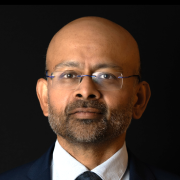
Dr Vasee Moorthy
Senior Advisor,
World Health Organization (WHO) Science Division
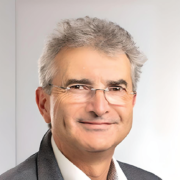
Prof Dominique Sprumont
Executive Committee Member,
Council for International Organizations of Medical Sciences (CIOMS);
President, Research Ethics Committee of Vaud;
Academic Partner, World Medical Association (WMA)
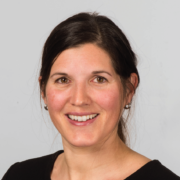
Dr med Regina Grossmann
Head,
Clinical Trials Center Zurich,
University Hospital Zurich,
Switzerland

Ms XU Ling
Quality Medicine Director,
Boehringer-Ingelheim,
China
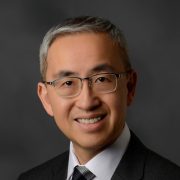
Prof Kenneth CHEUNG
Hospital Chief Executive,
HKU-Shenzhen Hospital,
China
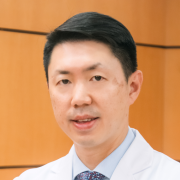
Prof Ivan HUNG
Chair Professor of Infectious Diseases,
Ru Chien and Helen Lieh Endowed Professor in Health Sciences Pedagogy; Associate Dean (Partnership & Engagement), HKUMed,
Hong Kong SAR
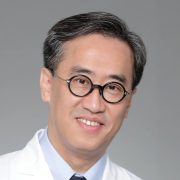
Prof Dennis IP
Clinical Associate Professor,
School of Public Health, HKUMed,
Hong Kong SAR
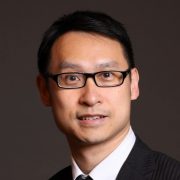
Prof Desmond YAP
Medical Director,
HKU Phase 1 Clinical Trials Centre,
Hong Kong SAR
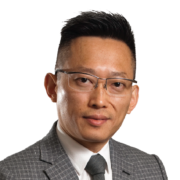
Mr Henry Yau
Managing Director,
HKU Clinical Trials Centre,
Hong Kong SAR

Dr Creany Wong
Deputy Managing Director,
HKU Clinical Trials Centre,
Hong Kong SAR
Programme
13:00 - 14:00
Registration & Light Refreshment
14:00 - 14:05
Welcome Address
Prof LEUNG Wai-keung, Chief Director, HKU Clinical Trials Centre, Hong Kong SAR
14:05 - 14:10
Opening Remarks
Prof LO Chung-mau, Secretary for Health, Hong Kong SAR
14:10 - 14:15
Opening Remarks
Prof Max SHEN, Vice-President and Pro-Vice-Chancellor (Research), The University of Hong Kong, Hong Kong SAR
14:15 - 15:45
Session 1: The Changing Global Paradigm
Session Chair:
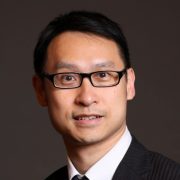
Prof Desmond Yat-Hin Yap joined the University Department of Medicine after his graduation from MBBS at the University of Hong Kong. He later pursued his Doctor of Medicine (MD) and Doctor of Philosophy (PhD) degree at his alma mater, both along the study of the immunopathogenesis and treatment of lupus nephritis.
His current major theme of research is immune-mediated glomerular diseases, with emphasis on lupus nephritis and membranous nephropathy. In 2024, Prof Yap ranked world #7 (5-year) in the field of lupus nephritis by ScholarGPS. Prof Yap was the co-first author for the Asian Guidelines for the management of lupus nephritis, co-published in the official journals of regional nephrology and rheumatology societies [Nephrology (Carlton) 2014; 19: 11-20 & Int J Rheum Dis 2013; 16: 25-36], and his research findings have also contributed to the latest KDIGO Clinical Practice Guideline for Glomerulonephritis 2024. He received the Hong Kong Society of Nephrology (HKSN) Young Investigator Award in 2009 for his research on serum immunoglobulin binding activity to human mesangial cells in lupus nephritis. Funded by the Li Shu Pui Clinical Fellowship (2014-2015), Prof Yap worked as a research fellow at the Fiebiger-Nikolaus Centre, Friedrich-Alexander University, Germany to study B cell homeostasis in immune-mediated diseases. Prof Yap’s other research interest pertains to infective complications in renal failure patients.
Prof Yap was awarded the LKS Faculty Teaching Medal in 2019, in recognition of his contributions in teaching and curriculum development. In 2021, he was awarded the prestigious Sir David Todd Lectureship by the Hong Kong College of Physicians for his work on lupus nephritis research.
Prof Yap is currently the Honorary Treasurer of the Asian Pacific Society of Nephrology (APSN) and also the Honorary Secretary of the HKSN. He also serves as Council Member of various important
professional societies including the Hong Kong Society of Transplantation and the Hong Kong Society for Histocompatibility and Immunogenetics. Prof Yap is currently the Medical Director of the HKU Phase 1 Clinical Trial Centre. Prof Yap has published over 170 peer-reviewed articles in various internationally renowned journals, and is currently Subject Editor for Nephrology, the official journal of the APSN.
14:15 – 14:45
Improving the Way We Generate Evidence: a Reformed Clinical Trials Framework
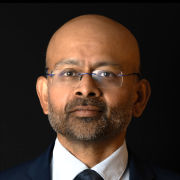
Dr Moorthy has a senior position within the Science Division at WHO. This is a corporate division of WHO’s headquarters created by the current Director-General to ensure that science and evidence lies at the heart of everything that WHO does. Dr. Moorthy is situated in a central Research for Health department that he helped create in 2019, which provides technical support to all of WHO’s disease and service delivery programmes on all matters related to research. He has over 25 years experience as a clinical researcher as follows: qualification in Natural Sciences (first class honours) from the University of Cambridge, UK; a medical degree from University of Oxford; a PhD in clinical trials of malaria vaccines from University of Oxford; 5 years of clinical research based in Africa (South Africa and The Gambia); making decisions about funding clinical trials working for PATH, an NGO based in USA; a career as a clinical academic at the University of Oxford, UK where he completed his internal medicine (FRCP) and infectious diseases subspecialty training; a total of 7 years as a practicing physician. Dr Moorthy joined WHO in 2008 as their lead on malaria vaccines, being promoted to positions of greater responsibility. He is now the lead coordinator on implementation of the World Health Assembly resolution on clinical trials passed in 2022. He has been involved in prioritization, funding, design and implementation of clinical trials that have recruited in over 50 countries, in all 6 WHO regions related to COVID-19, Ebola, Mers-CoV, Lassa fever, malaria, and many other infectious diseases.
The publication of the WHO guidance for best practices for clinical trials in September 2024 was a major milestone. For the first time there is now global guidance applicable to design and conduct of all clinical trials (whether or not they include investigational products), also with relevance to observational studies.
Key areas of focus include embedding research into health systems, developing sustained networks of continuously active clinical researchers, greater inclusivity of diverse population groups, the centrality of the need for interaction between patient/community groups and researchers in the trial life cycle, simplifying what can be excessively complex and uncoordinated clinical trial approval processes involving many bodies, and ensuring a risk-based, proportionate approach to design, data collection, oversight and inspection.
14:45 - 15:15
Moving Toward Global Research Ethics: The 2024 Revision of the Declaration of Helsinki

Prof Dominique Sprumont is a Professor of Health Law, President of the Research Ethics Committee of Vaud, founding member of the Institute of Health Law of the University of Neuchâtel, and past Vice-Director of the Swiss School of Public Health. He collaborated in the drafting of many legislations in the field of health and healthcare at the cantonal, Swiss and European levels. He is also regularly invited by scientific and professional associations in developing their guidelines in those fields, such as the WMA 2008, 2013 and 2024 revisions of the Declaration of Helsinki, the WMA 2016 Declaration of Taipei on Health Databases and Biobanks and the CIOMS 2023 International Guidelines on Good Governance Practice for Research Institutions. Expert in the field of public health law with special interest in the regulation of research involving human participants, patients’ rights, the regulation of healthcare professionals, pharmaceutical and food stuff regulation and public health, he has written more than 150 scientific publications, articles and book chapters on those issues. He is a board member of the European Network of Research Ethics Committees (EUREC), as well as of the Council for International Organizations of Medical Sciences (CIOMS). He is also academic partner of the World Medical Association (WMA) and coordinator of the initiative Training and Resources in Research Ethics Evaluation Program (TRREE), a free and open access e-learning program in research ethics and regulation available in 7 languages including Chinese (http://elearning.trree.org).
The World Medical Association has adopted the latest revision of the Declaration of Helsinki on October 2024. It represents a major step toward more global research ethics. Originally the DoH is rooted on the same principles as the Belmont Report, autonomy, non-maleficience (primum non nocere), beneficence and justice. Although contested by some, these four pillars of research ethics have demonstrated their universality. Yet, starting with the 2016 CIOMS International Ethical Guidelines for Health-Related Research with Humans, other fundamental principles have been deemed recently as essential in research ethics. Research is recognized as a common good and its conduct must aim at common goods (social value). The participants and their communities not only deserve protection but also respect as the expression of solidarity and reciprocity. Their meaningful engagement must be enabled before, during, and following any research, and the responsible inclusion of all in research, including people in situation of particular vulnerability, must be achieved. The development of biobanking also requires clear guidance, starting with respecting the participants’ free and informed consent for the re-use of their identifiable personal data and biological material, and the principles of good governance. The 2024 DoH encompasses all these principles while maintaining its structure and the same number of articles. Never before the DoH and the CIOMS International Ethical Guidelines have been so closely aligned between them and with the main guiding documents in research ethics at the international level. Regardless the internationalization and industrialization of clinical trials, the priority in research ethics is today more than ever the respect and protection of research participants and the quality and social value of research. The latest revision of the DoH reinforces its status as the constitution of global research ethics.
15:15 – 15:45
Clinical Trials Transformation under ICH E6(R3) Guideline

20-year experiences in pharmaceutical industry of quality assurance, clinical operation and pharmacovigilance, she has been worked for Pfizer, Sanofi and Boehringer Ingelheim
Expert Working Group member of ICH E21, Inclusion of Pregnant and Breastfeeding Individuals in Clinical Trials
Expert member of DIA China Clinical Operation Council
Clinical trial vision 2030
Comprehend E6(R3) Guideline Revisions: key updates in E6(R3) and their significance for enhancing clinical trial practices
Industry perspective on the implementation of E6(R3) Annex 2
The impact of E6(R3) Annex 2 on the use of Real-World Data (RWD)
15:45 – 16:10
Coffee Break
16:10 – 17:40
Session 2: Realizing Good Governance in the Era of Swift Transformation
Session Chair:

Professor Ip is currently Clinical Associate Professor and Division Head of the Division of Community Medicine and Public Health Practice in the School of Public Health, Li Ka Shing Faculty of Medicine, University of Hong Kong. He obtained his medical training from the University of Hong Kong. He received postgraduate training in Infectious Disease, Travel Medicine, Epidemiology, Statistics and Applied Mathematics, and obtained his MD degree in 2017. He underwent specialty training in Public Health in Hong Kong, and was trained in Public Health Genomics as a Visiting Fellow at Hughes Hall and the PHG Foundation of University of Cambridge. He is a founder member of the Faculty of Travel Medicine of the Royal College of Physicians and Surgeons of Glasgow, a fellow of the Australasian College of Tropical Medicine and its Faculty of Travel Medicine, and a fellow of the Royal Statistical Society.
His research work focuses on generating scientific knowledge for informing evidence-based clinical and public health practices in the preparedness and mitigation of influenza epidemics and pandemics. His major research interests include epidemiology of influenza transmission and novel approach of disease surveillance in various community settings, effective health promotion and disease control in the school setting, genetic determinants of influenza infection, impact of seasonal influenza vaccination programme, impact of antipyretic and antibiotic usage on influenza transmission, travel related diseases, and the impact of genetic development on public health practice.
He serves as a consultant for the World Health Organization on the development of infectious disease surveillance systems in China, and as a member of the Genetic Testing Formulary Scientific Committee of the Hospital Authority. He is a member of the Grant Review Board for the Health and Medical Research Fund of the Hong Kong SAR Government. He reviews manuscripts regularly for various international peer-review journals and is a statistical advisor for the editorial board of the journal PLoS ONE.
16:10 – 16:40
Public and Patient Involvement and Engagement in Europe and Switzerland

Studies of human medicine at University of Zurich (1999-2006).
Dissertation / thesis in Clinical Atherosclerosis Research in Zurich (2003-2006).
Specialization in Pharmaceutical Medicine, FMH Pharm. Med. (2007-2013).
More than 15 years of experience in clinical research, in pharmaceutical industry (Sanofi-Aventis, medical liaisons), Swiss Agency for Therapeutic Products Swissmedic (Medical Review, more than 30 GCP Inspections), regular participation in EMA GCP inspectors trainings.
Since 2011 at Clinical Trials Center (CTC; ISO 9001:2015 certified institution) of University Hospital Zurich (USZ) in different positions, since 2019 head CTC
Additional activities, Boards and Pannels:
SCTO Board of CTU directors (Swiss Clinical Trials Organisation SCTO)
ICN Steering Board (International clinical Trials Center Network; ICN)
Board Member of SAPM (Swiss Association of Pharm. Med. SAPM),
SSPT Council (Swiss Society of Pharmacology and Toxicology SSPT)
Board Member Health Tech Park Zurich
Data Governance Board USZ
Compliance Committee USZ
Clinical Ethics Committee USZ
This presentation explores the concept, forms, and impact of Patient and Public Involvement (PPI) in clinical research in Europe and Switzerland, highlighting its importance in fostering patient-centered studies. It will outline the spectrum of PPI engagement, from information sharing to co-production and patient-led research, and examine how PPI enhances study relevance, quality, and ethical standards. Key challenges, such as cultural and logistical barriers, will be addressed, along with strategies to overcome them through training, inclusivity, and structured frameworks. By showcasing successful examples and the broader societal benefits, the session underscores PPI’s transformative potential to improve clinical research outcomes and public trust.
16:40 – 17:10
Good Research Governance and Management for Medical Innovation and Advancement with People

Henry Yau is the Group Chief Executive Officer of The University of Hong Kong Clinical Trials Centre (China) and HKU Clinical Research (Shenzhen), Managing Director of The University of Hong Kong Clinical Trials Centre (HKU-CTC), Managing Director of Gleneagles Hospital Hong Kong Clinical Trials Centre (Gleneagles CTC), Honorary Assistant Professor of Faculty of Medicine of Macau University of Science and Technology (MUST) and Non-executive Director of MUST Clinical Trials Centre (MUST-CTC). He holds a B.Sc. in Biochemistry and a MBA in Finance. Started his career in the pharmaceutical industry in early-1990s, Henry has been specializing in clinical research management for over two decades. Henry also undertakes different roles in many international bodies such as Steering Board Member and Past Chairperson of the International Clinical Trial Center Network (ICN), Member of the Working Group on Good Governance Practice for Research Institutions of the Council for International Organizations of Medical Sciences (CIOMS), and Advisor (Asia) of Training and Resources in Research Ethics Evaluation Program (TRREE). He is also devoted to consolidating and transferring practical knowledge in international clinical research management and operations, and participated as speaker, trainer or panelist in over 170 conferences/forums/workshops around the world.

Dr Creany Wong is the Chief Operating Officer of The University of Hong Kong Clinical Trials Centre (China) (HKU-CTCC) and HKU Clinical Research (Shenzhen), Deputy Managing Director of The University of Hong Kong Clinical Trials Centre (HKU-CTC), Deputy Managing Director of Gleneagles Hospital Hong Kong Clinical Trials Centre (Gleneagles CTC), Honorary Assistant Professor of Faculty of Medicine of Macau University of Science and Technology (MUST) and Non-executive Director of MUST Clinical Trials Centre (MUST-CTC). Creany obtained her bachelor degree in Food and Nutritional Science in 2001 and then continued her M.Phil and PhD degree studies at The University of Hong Kong. She has 18 years’ of diversified clinical research management experience including site management, clinical research pharmacy, phase 1 centre operations and biospecimens management. Creany also undertakes different roles in many local and international bodies such as Member of Genetically Modified Organisms (Control of Release) Expert Group of AFCD of HKSAR, Member of the Working Group on Good Governance Practice for Research Institutions of CIOMS, and Advisor (Asia) of Training and Resources in Research Ethics Evaluation Program (TRREE). She is devoted in disseminating practical knowledge in international clinical research management and operations, and participated as speaker, trainer or panelist in over 110 conferences/seminars forums/workshops around the world.
Clinical research is getting more and more challenging, in terms of research design and methodology, participants engagement, study operations, data management and analysis, as well as demanding quality, risk and compliance management. Investigators need strong support by their institutions to run valuable clinical studies and to avoid research waste. Good research governance and management therefore becomes a key success factor for any clinical studies. Over a period of 26 years, HKU-CTC has built a robust governance and management model supporting its continuous development and energizing the accomplishment of the research goals of investigators and sponsors. The practical experience of HKU-CTC could be a useful reference for clinical research institutions worldwide to take from.
17:10 – 17:40
Panel Discussion: Tackling the Next Pandemic Through Good Research Governance and Global Collaboration
Moderator:

Professor Ip is currently Clinical Associate Professor and Division Head of the Division of Community Medicine and Public Health Practice in the School of Public Health, Li Ka Shing Faculty of Medicine, University of Hong Kong. He obtained his medical training from the University of Hong Kong. He received postgraduate training in Infectious Disease, Travel Medicine, Epidemiology, Statistics and Applied Mathematics, and obtained his MD degree in 2017. He underwent specialty training in Public Health in Hong Kong, and was trained in Public Health Genomics as a Visiting Fellow at Hughes Hall and the PHG Foundation of University of Cambridge. He is a founder member of the Faculty of Travel Medicine of the Royal College of Physicians and Surgeons of Glasgow, a fellow of the Australasian College of Tropical Medicine and its Faculty of Travel Medicine, and a fellow of the Royal Statistical Society.
His research work focuses on generating scientific knowledge for informing evidence-based clinical and public health practices in the preparedness and mitigation of influenza epidemics and pandemics. His major research interests include epidemiology of influenza transmission and novel approach of disease surveillance in various community settings, effective health promotion and disease control in the school setting, genetic determinants of influenza infection, impact of seasonal influenza vaccination programme, impact of antipyretic and antibiotic usage on influenza transmission, travel related diseases, and the impact of genetic development on public health practice.
He serves as a consultant for the World Health Organization on the development of infectious disease surveillance systems in China, and as a member of the Genetic Testing Formulary Scientific Committee of the Hospital Authority. He is a member of the Grant Review Board for the Health and Medical Research Fund of the Hong Kong SAR Government. He reviews manuscripts regularly for various international peer-review journals and is a statistical advisor for the editorial board of the journal PLoS ONE.
Panelists:

Prof Dominique Sprumont is a Professor of Health Law, President of the Research Ethics Committee of Vaud, founding member of the Institute of Health Law of the University of Neuchâtel, and past Vice-Director of the Swiss School of Public Health. He collaborated in the drafting of many legislations in the field of health and healthcare at the cantonal, Swiss and European levels. He is also regularly invited by scientific and professional associations in developing their guidelines in those fields, such as the WMA 2008, 2013 and 2024 revisions of the Declaration of Helsinki, the WMA 2016 Declaration of Taipei on Health Databases and Biobanks and the CIOMS 2023 International Guidelines on Good Governance Practice for Research Institutions. Expert in the field of public health law with special interest in the regulation of research involving human participants, patients’ rights, the regulation of healthcare professionals, pharmaceutical and food stuff regulation and public health, he has written more than 150 scientific publications, articles and book chapters on those issues. He is a board member of the European Network of Research Ethics Committees (EUREC), as well as of the Council for International Organizations of Medical Sciences (CIOMS). He is also academic partner of the World Medical Association (WMA) and coordinator of the initiative Training and Resources in Research Ethics Evaluation Program (TRREE), a free and open access e-learning program in research ethics and regulation available in 7 languages including Chinese (http://elearning.trree.org).

Studies of human medicine at University of Zurich (1999-2006).
Dissertation / thesis in Clinical Atherosclerosis Research in Zurich (2003-2006).
Specialization in Pharmaceutical Medicine, FMH Pharm. Med. (2007-2013).
More than 15 years of experience in clinical research, in pharmaceutical industry (Sanofi-Aventis, medical liaisons), Swiss Agency for Therapeutic Products Swissmedic (Medical Review, more than 30 GCP Inspections), regular participation in EMA GCP inspectors trainings.
Since 2011 at Clinical Trials Center (CTC; ISO 9001:2015 certified institution) of University Hospital Zurich (USZ) in different positions, since 2019 head CTC
Additional activities, Boards and Pannels:
SCTO Board of CTU directors (Swiss Clinical Trials Organisation SCTO)
ICN Steering Board (International clinical Trials Center Network; ICN)
Board Member of SAPM (Swiss Association of Pharm. Med. SAPM),
SSPT Council (Swiss Society of Pharmacology and Toxicology SSPT)
Board Member Health Tech Park Zurich
Data Governance Board USZ
Compliance Committee USZ
Clinical Ethics Committee USZ

Prof. Kenneth M.C. Cheung is the Jessie Ho Professor in Spine Surgery and Chair Professor at the Li Ka Shing Faculty of Medicine, the University of Hong Kong. He was the Head of the Department of Orthopaedics and Traumatology until December 2021 and officially takes the helm as Hospital Chief Executive of HKU-Shenzhen Hospital starting July 2022. Prof. Cheung is a world-renowned academic spine surgeon with special expertise in the treatment of spinal deformities in children and adults. He is the Past President of the Hong Kong College of Orthopaedic Surgeons, and he was the first Chinese President of the international Scoliosis Research Society (SRS), the world's highest academic institution of spinal surgery (2016-2017). He not only led the development of orthopaedics in Hong Kong, but also played a significant role on the international stage on behalf of China’s orthopaedics. In 2021, he was awarded the prestigious Walter P. Blount Humanitarian Award by the Scoliosis Research Society for his outstanding service to those with spinal deformity, and for generosity to the profession and society. Since 1987, Prof. Cheung has been working in the front line of orthopaedic clinical services, teaching and research. His clinical and translational research in the prevention and treatment of scoliosis has reached international level. He has been invited to give lectures at many international academic events and has extensive experience in science and medicine related matters. He has received 37 awards for research excellence, published over 370 peer reviewed scientific articles, 22 book chapters and holds 63 patents. He also serves as the Emeritus Editor of the Journal of Orthopaedic Surgery and the Deputy Editor of The Journal of Bone and Joint Surgery.

Professor Ivan Fan Ngai HUNG is currently Chair Professor of Infectious Diseases, Ru Chien and Helen Lieh Endowed Professor in Health Sciences Pedagogy, Associate Dean (Partnership & Engagement), Head of the Division of Infectious Diseases, Department of Medicine, LKS Faculty of Medicine, The University of Hong Kong, and Honorary Consultant in Queen Mary Hospital, Hong Kong. He is also Chair Professor and Chief-of-Service of the Department of Infectious Diseases and Clinical Microbiology at the HKU-Shenzhen Hospital.
Professor Hung is a dual specialist in Infectious Disease and Gastroenterology & Hepatology. He obtained his medical degree from the University of Bristol Medical School, England in 1996. After working in the University of Cambridge Medical School and Charing Cross Hospital, London, he returned to Hong Kong in 1999 and joined the Department of Medicine, Queen Mary Hospital. He was awarded the Anti-SARS gold badge award by the Hospital Authority in 2003 for his role in combating SARS as frontline medical officer. He received the Sir Patrick Manson Gold Medal award for best M.D. thesis. He was awarded the Richard Yu Lectureship and medal in 2016 by the Hong Kong College of Physicians. He was awarded the prestigious Outstanding Researcher Award from the University of Hong Kong in 2019. He is the Fellow of Royal Colleges of Physicians of London and Edinburgh, and fellow of the Infectious Disease Society of America and Advisory Board Member of the Universal Scientific Education & Research Network (USERN).
Venue
Organizers
The University of Hong Kong Clinical Trials Centre (HKU-CTC) is an academic clinical research organization established under The University of Hong Kong (HKU) in 1998 and has been authorized as the central platform for management and coordination of clinical studies under HKU and its affiliated teaching hospital – Queen Mary Hospital (QMH). HKU-CTC is devoted to partnering with clinical investigators, research organizations and the healthcare industry in advancing human healthcare by promoting, attracting and facilitating clinical studies of various natures.
The University of Hong Kong-Shenzhen Hospital (HKU-SZH) is a major comprehensive public hospital built by the Shenzhen municipal government with introduction of modern management model by the University of Hong Kong. At a total capital cost of about 4 billion Yuan, the hospital has a total floor area of 367,000 square meters situated on 192,000 square meters of land. With 2000 beds currently in operation, the Hospital has already commenced its second-phase expansion project to increase the total bed complement to 3000 beds in accordance with government planning.
Contact Us
© 2024 Clinical Trials Centre, The University of Hong Kong. All Rights Reserved.


